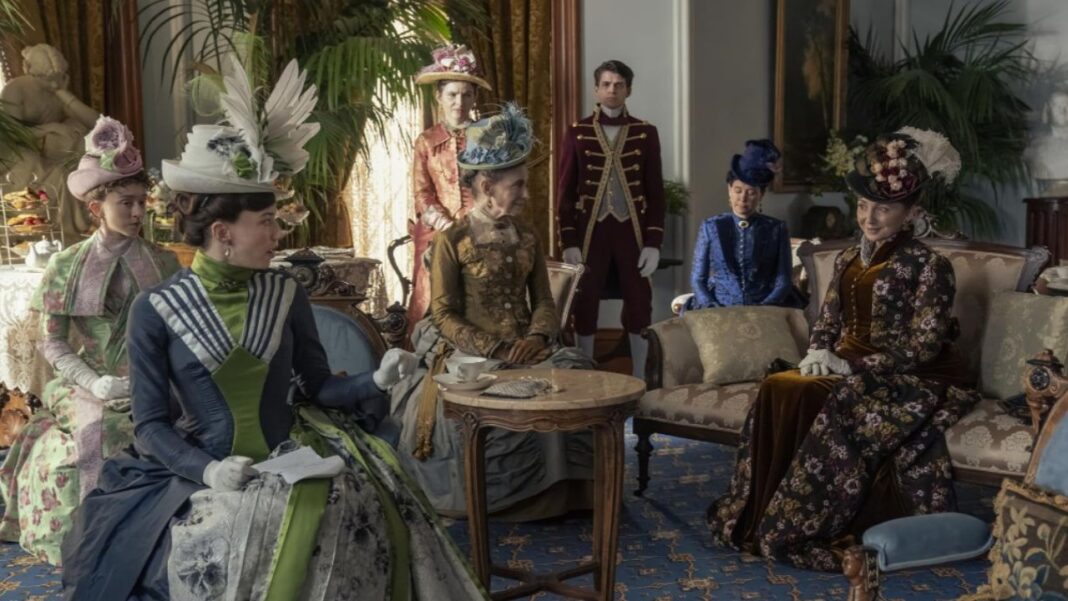In the second season of The Gilded Age, the dynamics of the character’s lives and the intricate web of relationships took center stage, bringing about dramatic shifts and unexpected turns. The culmination of the Opera War, Mrs. Fish’s decisive move to The Met, Aunt Ada’s newfound financial power, Jack’s innovation, the fight against the Education Board, Peggy’s sacrifice, and Marian’s romantic choices all contributed to a riveting conclusion.
The Gilded Age Season 2 ending explained
What did Bertha Russell promise to the Duke?
The Opera War, a fierce battle between Mrs. Astor and Mrs. Russell for the favor of the Duke, reached its climax with a secret promise. Bertha Russell, having outmaneuvered Mrs. Winterton and secured the Duke, promised him something deeply personal—her daughter, Gladys. This revelation set the stage for potential conflicts in the upcoming season, as it clashed with Gladys’ desire to marry for love.

The societal shifts
Mrs. Fish’s decision to join The Met instead of The Academy marked a significant shift in American societal norms. By aligning herself with the rising influence of new money, she claimed victory in the Opera War and proclaimed that she had reinvented American society. This move showcased the power of new money to redefine social standards and challenge the established hierarchy.
Transformation in power dynamics
Aunt Ada’s unexpected inheritance brought about a transformation in the Van Rhijn household. With newfound financial stability, Agnes could retain her home, and Aunt Ada emerged as a powerful figure, becoming the employer of the household staff. This shift hinted at Ada’s potential to exert influence and challenge Agnes’ previous dominance.
Jack’s invention
Jack’s journey with the invention of the alarm clock symbolized upward mobility for the working class. His innovative escapement mechanism not only revolutionized time-telling devices but also demonstrated the potential for individuals to rise through the social ranks based on their ingenuity and hard work. This subplot echoed the American Dream and illustrated stories of progress and success.

The fight for education
The fight against the Education Board’s attempt to close schools for people of color highlighted a broader societal struggle. The unity between people of color and Irish immigrants showcased the power of collaboration in overcoming prejudice and ensuring access to education. This pivotal moment laid the groundwork for future progress in the fight for equal rights.
Peggy Scott’s sacrifices
Peggy Scott’s decision to sacrifice her dream job for the sake of propriety and her budding feelings for Mr. Fortune added a personal and emotional dimension to the narrative. Her choice hinted at a potential future as a novelist, influencing societal perspectives through her writing.
Marian’s decision to cancel the wedding
Marian’s canceled wedding to Dashiell Montgomery underscored her determination to prioritize her career and avoid settling for a conventional match. This decision paved the way for a potential romantic connection with Larry Russell, aligning them as like-minded individuals eager to make a difference in the world.







